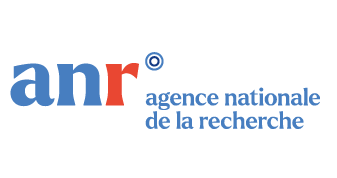2009-2012 ROBOCOOP : Robustness and Cooperation in Scheduling
ANR Blanc - Partners : LIMOS (Clermont-Ferrand), LAAS (Toulouse), Lamsade (Paris), LIFAT (Tours) et ILOG/IBM (Paris).

The goal of the ROBOCOOP project is twofold.
The above tasks seem of interest from both an academic and a practice viewpoint. Indeed, the recent advances in information technology make the development of cooperative scheduling systems nowadays effective, particularly in applicative fields such as production management (supply chain management systems) or project management. Nevertheless, existing systems often restrict cooperation to the basic exchange of structured information, just allowing the decisional actors to coordinate themselves. Beyond this first functionality, a natural evolution is to allow actors to collaborate themselves, enabling them to negotiate their decision together in order to enhance the efficiency of the whole organization. While natural, this evolution is also much more complex. Many questions arise: how decisions should be negotiated? How robust scheduling techniques can help to enhance the efficiency of an organization? How to measure this efficiency? How cooperation mechanisms can be implemented? These are some questions we intend to answer during the 3-years long ROBOCOOP project.
The ROBOCOOP project involves 4 complementary partners: 3 academic partners and 1 industrial partner, all internationally well-recognized for their contribution in the robust-scheduling field. All the software developments will be made inside French laboratories and freely accessible through the ROBOCOOP web site. The hiring of a PhD student and a research engineer has been planned for supporting the project. Some invited-researcher months have also been forecasted in the budget so that well-known foreign researchers can visit us for evaluating their robust scheduling procedures and sharing their experience.
- On the one hand, it aims at designing and implementing original cooperative approaches for robust scheduling which can be used in distributed and perturbed environments.
- On the other hand, it takes an interest in developing a set of evaluation tools, aiming at analyzing the effectiveness of robust scheduling approaches with respect to several robustness indicators.
The above tasks seem of interest from both an academic and a practice viewpoint. Indeed, the recent advances in information technology make the development of cooperative scheduling systems nowadays effective, particularly in applicative fields such as production management (supply chain management systems) or project management. Nevertheless, existing systems often restrict cooperation to the basic exchange of structured information, just allowing the decisional actors to coordinate themselves. Beyond this first functionality, a natural evolution is to allow actors to collaborate themselves, enabling them to negotiate their decision together in order to enhance the efficiency of the whole organization. While natural, this evolution is also much more complex. Many questions arise: how decisions should be negotiated? How robust scheduling techniques can help to enhance the efficiency of an organization? How to measure this efficiency? How cooperation mechanisms can be implemented? These are some questions we intend to answer during the 3-years long ROBOCOOP project.
The ROBOCOOP project involves 4 complementary partners: 3 academic partners and 1 industrial partner, all internationally well-recognized for their contribution in the robust-scheduling field. All the software developments will be made inside French laboratories and freely accessible through the ROBOCOOP web site. The hiring of a PhD student and a research engineer has been planned for supporting the project. Some invited-researcher months have also been forecasted in the budget so that well-known foreign researchers can visit us for evaluating their robust scheduling procedures and sharing their experience.
